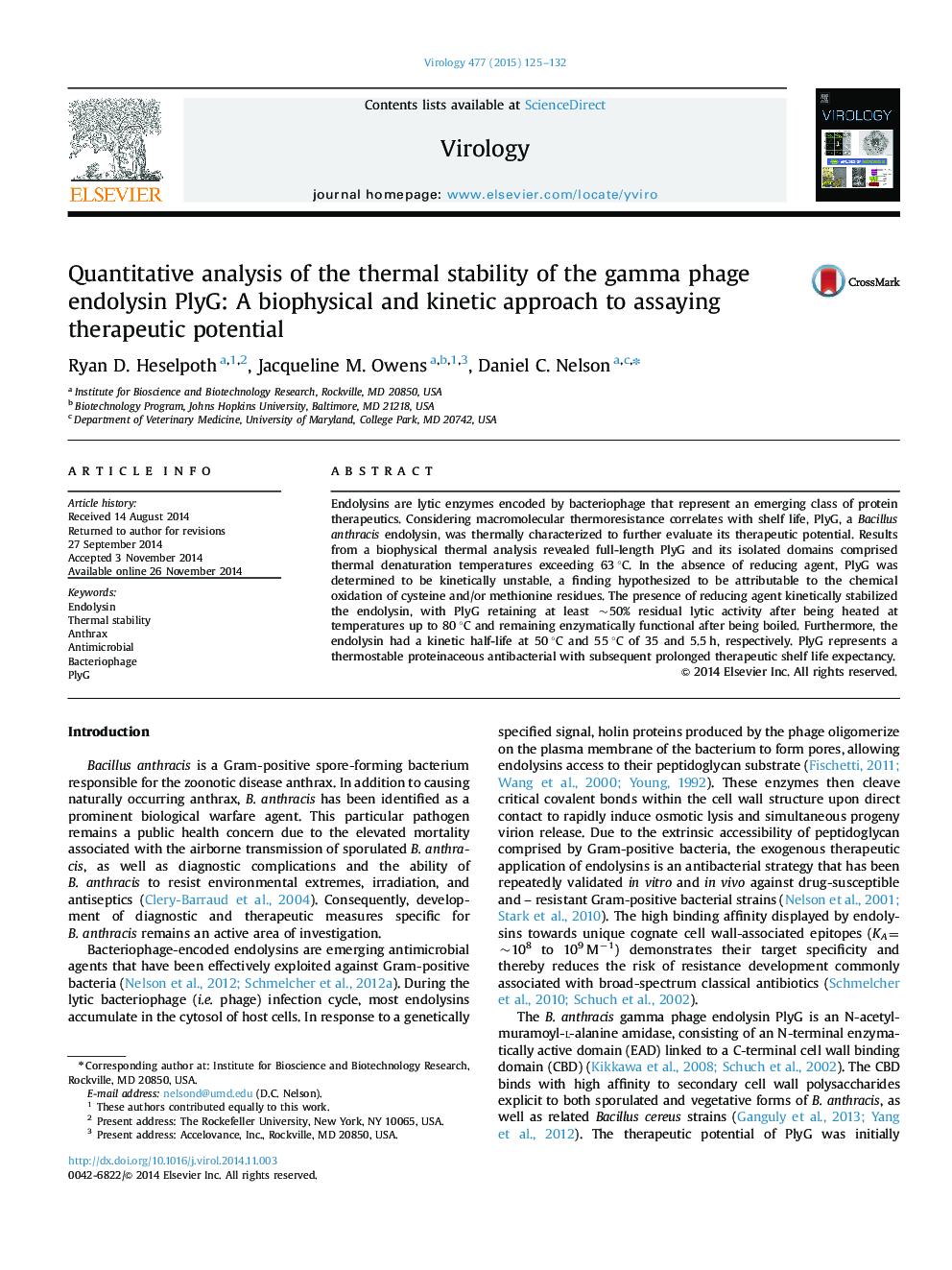| Article ID | Journal | Published Year | Pages | File Type |
|---|---|---|---|---|
| 6139582 | Virology | 2015 | 8 Pages |
â¢PlyG is a potential antimicrobial therapeutic against susceptible bacilli.â¢PlyG and its isolated domains were thermally characterized.â¢PlyG was found to be stable at temperatures >60 °C.â¢Reducing agents further increased thermal stability of PlyG.
Endolysins are lytic enzymes encoded by bacteriophage that represent an emerging class of protein therapeutics. Considering macromolecular thermoresistance correlates with shelf life, PlyG, a Bacillus anthracis endolysin, was thermally characterized to further evaluate its therapeutic potential. Results from a biophysical thermal analysis revealed full-length PlyG and its isolated domains comprised thermal denaturation temperatures exceeding 63 °C. In the absence of reducing agent, PlyG was determined to be kinetically unstable, a finding hypothesized to be attributable to the chemical oxidation of cysteine and/or methionine residues. The presence of reducing agent kinetically stabilized the endolysin, with PlyG retaining at least ~50% residual lytic activity after being heated at temperatures up to 80 °C and remaining enzymatically functional after being boiled. Furthermore, the endolysin had a kinetic half-life at 50 °C and 55 °C of 35 and 5.5 h, respectively. PlyG represents a thermostable proteinaceous antibacterial with subsequent prolonged therapeutic shelf life expectancy.
